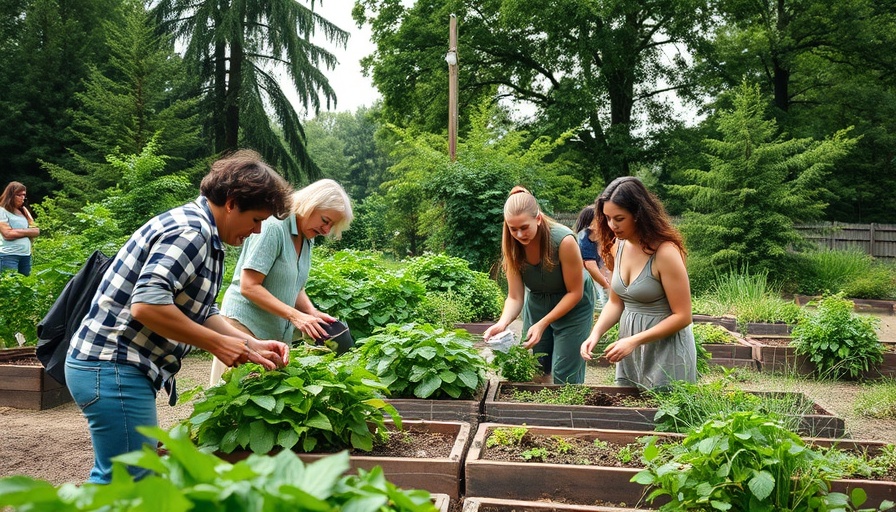
Understanding Circularity in Hospitality: A Game-Changer
In a rapidly evolving global landscape, boutique hospitality professionals face significant challenges due to geopolitical uncertainties and supply chain disruptions. However, embracing circularity holds the potential not just to mitigate these risks but also to pave the way for sustainable innovation. Circular economies emphasize reducing, reusing, and recycling resources, which are highly beneficial for small-scale hotel owners, eco-lodge operators, and Airbnb hosts looking to create eco-conscious businesses.
The Hidden Costs of Linear Models
Traditionally, the linear model of consumption—take, make, dispose—has dominated industries, including hospitality. This model has left a significant environmental footprint while making businesses vulnerable to tariff pains and geopolitical tensions. With the increasing costs associated with imports and exports, entrepreneurs in the hospitality sector must reconsider their strategies. Circularity can offset these costs by minimizing waste and enhancing resource efficiency, which ultimately leads to cost savings.
Embracing Sustainable Packaging Solutions
One practical step toward a circular economy in the boutique hospitality sector is adopting sustainable packaging. By sourcing local, zero-waste packaging solutions, hospitality businesses can not only reduce their environmental impact but also appeal to eco-conscious travelers. Offering products that utilize minimal or recyclable packaging significantly enhances a brand's corporate social responsibility and builds trust with consumers.
How Circular Practices Create Brand Loyalty
Today's consumers, especially younger generations, favor brands that prioritize sustainability. By implementing circular practices, boutique accommodations can enhance their reputation, attracting more guests while ensuring repeat visits. Providing guests with an authentic sustainable experience—whether through organic, locally sourced food or eco-friendly amenities—further differentiates their offerings in a competitive market.
Regenerative Business: A Sustainable Future
Beyond merely reducing waste, regenerative business practices transcend traditional sustainability. They focus on actively improving the environment. For hospitality professionals, this can mean implementing renewable energy systems or engaging in local conservation efforts. Not only do these initiatives resonate with today's travelers, but they can also offer financial incentives through grants and tax breaks focused on green energy solutions.
Practical Insights for the Eco-Conscious Hotelier
Integrating circularity into hospitality may sound daunting, but there are tangible steps small operators can take immediately:
Evaluate your supply chain for waste: Identify areas where waste can be reduced, reused, or recycled.
Engage with local businesses: Foster partnerships with local farms or artisans to support the local economy while enhancing your service offerings.
Train staff on sustainability practices: Engage your team in your sustainability journey; their involvement can lead to innovation and improvement.
Educate your guests: Share your sustainable practices with guests, inviting them to be part of the solution.
As boutique hospitality professionals consider their roles in a circular economy, it’s essential to remember: adopting sustainable practices is not just an obligation but an opportunity. This transition can lead to increased customer satisfaction, reduced operational costs, and a commitment to positive environmental impact.
Call to Action: Join the Movement
To compete in the burgeoning eco-conscious travel market, now is the time to embrace circularity. Explore how small changes in your operational practices can lead to profound impacts on your business and the planet. Implementing a circular model not only promotes sustainability but also strengthens your brand's position in the hospitality industry. Are you ready to reduce your geopolitical risk through sustainable practices?
 Add Row
Add Row  Add
Add 




Write A Comment